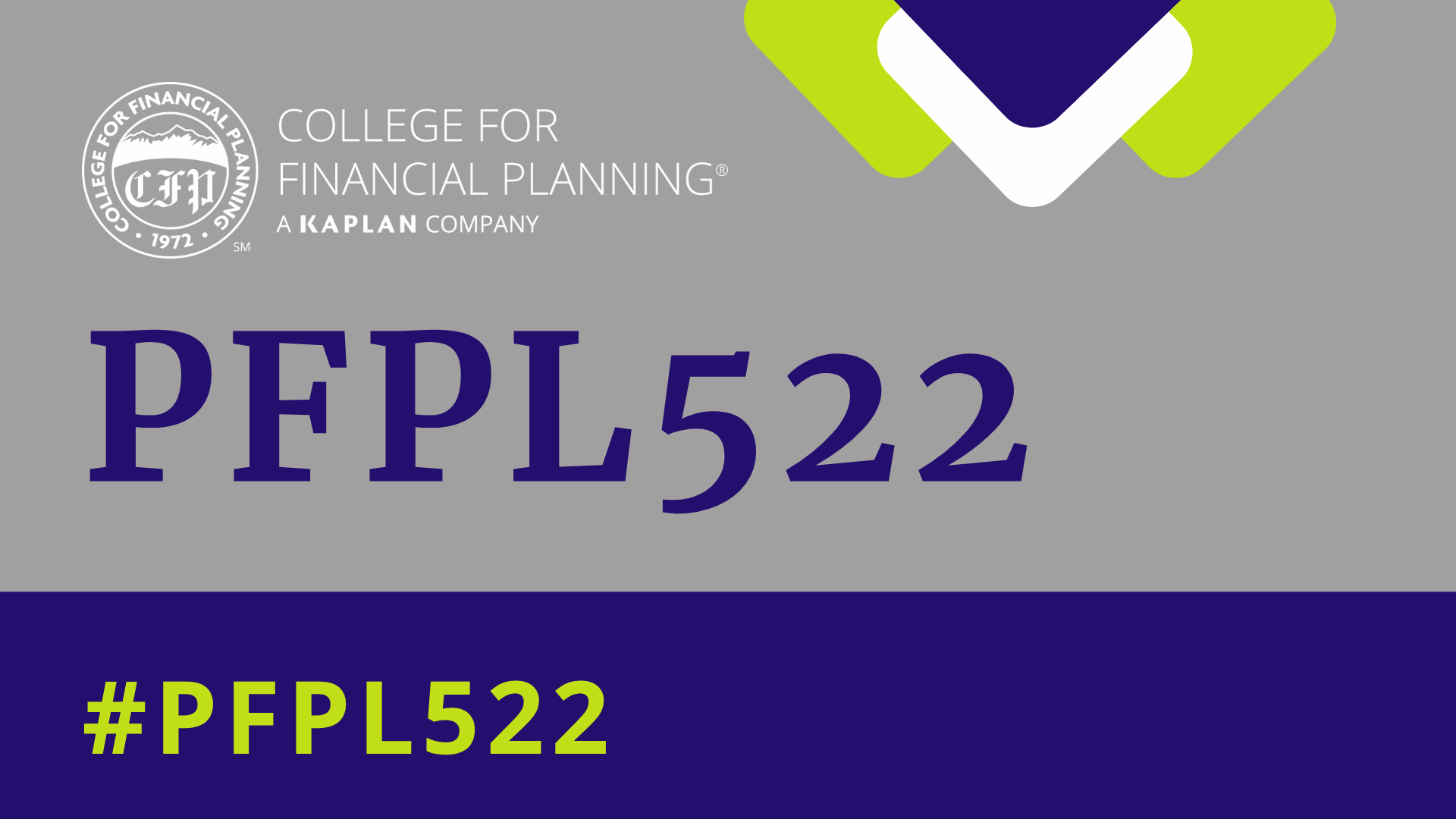PFPL 522 is one of my favorite courses because it deals with the psychology of money

Moderator
🚨In PFPL522, we move beyond the numbers and dive deep into the human side of finance. This course equips students to understand why people make the financial decisions they do—and how planners can help guide better ones.
Financial planning isn’t just about optimizing portfolios—it’s about understanding people. PFPL522 trains students to recognize behavioral patterns, biases, and emotional drivers in their clients (and themselves), setting the stage for empathetic, ethical, and effective planning.
Throughout the eight-week term, students explore:
- Two Systems of Thinking: Understand how clients process information and make decisions—often irrationally.
- Client Trust & Behavioral Biases: Examine anchoring, availability, and representativeness biases, and how they affect both clients and planners.
- Listening & Referrals: Learn when to listen, when to refer, and how to "do no harm" as a financial professional.
- Money Disorders & Sudden Wealth: Study how past experiences and psychological factors shape financial behaviors.
- Overcoming Resistance to Change: Tackle the endowment effect, framing, and rare event fallacies in client behavior.
- Money Scripts: Identify deeply rooted beliefs that drive money behaviors and how to reframe them.
- Integrating Tools into Practice: Build a client discovery process that includes risk questionnaires and behavioral insights.
- Working with Couples: Understand how to navigate financial dynamics and problematic behaviors in couples' planning.
PFPL 522 is one of our most highly rated courses. Students report increased levels of personal and professional growth, client skills, and career satisfaction. Instructors receive high marks for their insightful comments and guidance. I cannot recommend this course enough!
If you're currently taking PFPL522—or have in the past—we’d love to hear from you:
- What topics or case studies resonated most with you?
- How have you seen behavioral biases at work in your own practice or life?
- What tools from this course are you most excited to apply with clients?
Drop your thoughts, experiences, or questions in the comments and let’s build a dialogue on how psychology and planning come together in meaningful ways.
